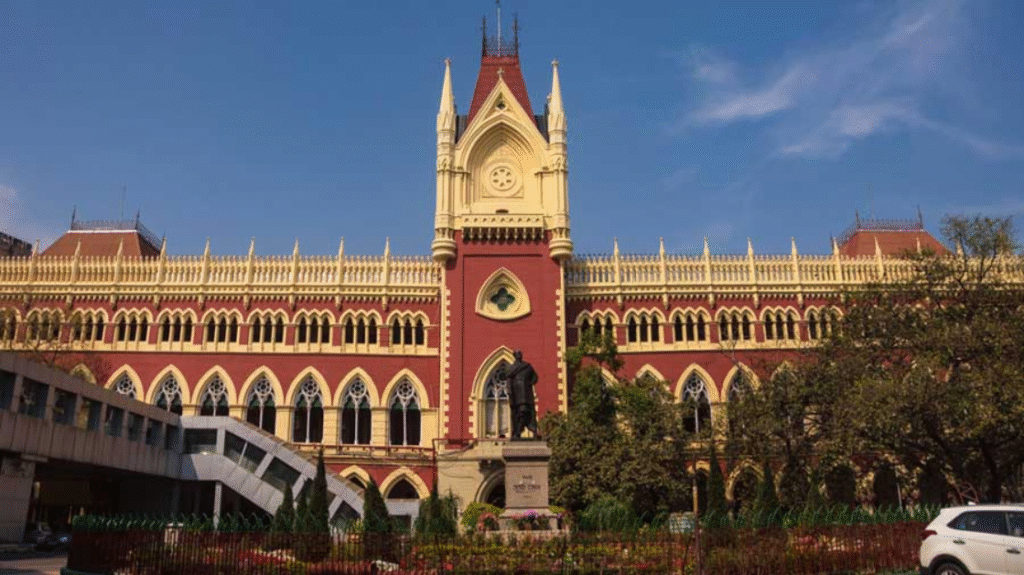SC stays Calcutta High Court stay on West Bengal OBC list
In a significant judgment on July 28, 2025, the Supreme Court of India stayed a Calcutta High Court order that had blocked implementation of a revised OBC list in West Bengal. The SC described the HC order as “prima facie erroneous”, stressing that issuing such a stay was beyond the HC’s jurisdiction, and that reservation falls within the executive domain, not legislative.
Background: What Calcutta High Court ruled
- On June 17, a division bench of the Calcutta HC imposed an interim stay on the state’s notification listing 140 sub‑categories under OBC-A and OBC-B, pending judicial scrutiny.
- In May 2024, the same court had quashed the inclusion of 77 communities in the earlier OBC list, holding that only legislative endorsement—not executive fiat—could validate such classifications.
⚖️ Legal Contours: Executive vs Legislative Powers
Reservation as executive domain
Chief Justice B.R. Gavai, along with Justices K. Vinod Chandran and N.V. Anjaria, asked:
“How can the High Court stay like this? Reservation is part of the executive function.”
Citing the landmark Indra Sawhney judgment, the bench asserted that backward class identification is valid via executive notifications, not requiring legislative approval.
Procedural fairness — SC’s take
The SC also questioned the Calcutta High Court’s argument that the executive should present survey findings and OBC classification lists before the State Legislature, stating such a requirement is not mandated under the 2012 Backward Classes Act.
🧾 Status & Ongoing Litigation
- The Supreme Court granted an interim stay on the HC’s order and issued notice on the State’s Special Leave Petition (SLP).
- A fresh hearing on the matter is scheduled for August 4, 2025.
- Meanwhile, the Calcutta High Court has extended its stay on the executive notifications till August 31, further prolonging administrative uncertainty.
🚨 Impact on State Policies & Institutions
Admissions & Recruitment Halted
Key decisions—including college admissions and judicial recruitments—have been delayed. Institutions such as Jadavpur University halted OBC-in-reservation admissions due to ongoing legal ambiguity.
Administrative urgencies stalled
The West Bengal government, via senior counsel Kapil Sibal, argued the ongoing stay disrupts recruitments and public welfare mechanisms, urging urgent SC intervention.
🔍 Significance & Parties Affected
- Executive prerogative reaffirmed: The SC’s stance reinforces that states can issue OBC lists without awaiting legislative sanction, aligning with Indra Sawhney (1992) and Ashoka Kumar Thakur (2006) precedents.
- Legal uncertainty: State-level policy decisions depending on backward class reservations—such as public service recruitments and university admissions—are in limbo.
- Political weight: The ruling is viewed as legal relief for Chief Minister Mamata Banerjee, whose administration framed the revised list.
⚖️ Legal Takeaways & Broader Jurisprudence
Legislative vs Executive balance
The judgment insists that socially and educationally backward classes may be identified by executive notifications, not necessarily via legislation—a key executive power reaffirmed.
Clarifying role of courts
The Supreme Court pointedly rejected the HC’s position that only a legislature can validate an OBC list, asserting it was inappropriate for the HC to stay the executive-approved classifications.
🧾 Conclusion & Looking Ahead
The apex court’s decision reasserts executive authority in classification of backward classes under constitutional law. While maintaining legal scrutiny, the SC reversed the Calcutta High Court’s stay, restoring the West Bengal government’s list pending further hearing on August 4.
This case serves as a benchmark for future legal intervention in reservation-related disputes, clarifying the constitutional balance between executive discretion and judicial oversight.
To read more Indian Laws and news, visit Legal Guide India



